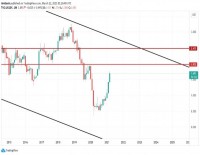|
By Bailey McCann, Private Equity Strategies Private equity as an industry has come to rely on pension allocations as a significant, if not majority source of new allocations over the years. That model has worked quite well for a few decades, but now as retirement accounts shift from pension plans to 401(k) and other defined contribution vehicles, private equity isn’t part of the mix. Private equity investments don’t offer the daily liquidity that is often required by these types of retirement offerings. That’s sent the industry scrambling to find new ways of including long-term investments in products that are biased toward short-term liquidity. Enter Pantheon. London-based Pantheon, a veteran investor in private equity, infrastructure and real assets, has introduced a new product that would allow custom-date target funds to include private equity in the asset allocation mix. Notably, the product includes performance based pricing. “We want to be able to offer the same investment access and benefits to the defined contribution market that individuals in a defined benefit plan receive,” explains Kevin Albert, Managing Director at Pantheon in an interview with Private Equity Strategies. “Defined benefit plans have been able to plan for long-term funding by investing in asset classes like private equity, but that security is not available to the DC market.” The U.S. retirement market consists of both defined benefit (DB) and DC plans, and more than 90 million U.S. citizens are covered by DC plans, with DC assets in excess of $6.7 trillion. Historically, DB plans have outperformed DC plans for reasons that include a shift toward alternative assets and differing investment fee structures. Based on the strong returns the private equity asset class has delivered in recent years, Pantheon believes that private equity strategies have the potential to address the performance delta between DB and DC plans and merit consideration as a viable investment option by plan sponsors. “We believe it is essential to take action to close the performance gap between DB and DC plans,” Albert says. “Research shows that 52% of American households are currently at risk of not having enough to maintain their living standards during retirement.Retirees can ill afford to suffer continued underperformance in their DC plans.” The performance pricing option applies only to that portion of a portfolio actually invested in private equity investments (e.g., not including cash and liquid securities). A performance-based fee is only accrued when the performance of the private assets in the portfolio beats its benchmark, which is the S&P 500. Pantheon does not receive all the performance fee it accrued immediately. When a performance fee is accrued, it is gradually paid to Pantheon over at least eight calendar quarters. This is so there can be a reservoir available to reverse performance fee accruals in scenarios of underperformance. Because Pantheon’s strategy intends to accommodate periodic trading, and the fee accrued would be reflected in the strategy NAV as of the relevant period, investors will not pay for performance they did not experience. Pantheon is working with a number of General Partners, including KKR, to seek to manage the less predictable and irregular investor capital inflows that can be expected in a DC plan, and to facilitate efficient deployment. The types of private equity investments in the strategy will look roughly similar to others Pantheon already has. The strategy team will be included as another client by the investment committee, which considers co-investments, secondaries fund investments, infrastructure funds, buyouts funds, etc. “The strategy has the benefit of offering diversification by manager not just by deal,” Albert contends. Pantheon isn’t the only firm looking for new ways to include private equity in DC vehicles. Last week Blackstone acquired Aon Hewitt’s record keeping business, which could signal the firm’s desire to infuse private equity in more corners of the retirement market. Aon Hewitt is the fifth-largest record keeper of DC plans by assets, with $377 billion under administration as of Sep. 30, 2015, according to Pensions & Investments data. Prudential also offers a similar setup to DC plans for real asset investments that includes a mix of REITs and listed infrastructure and real estate companies. It’s still early days for the Pantheon product. The company has had several review sessions with private equity and retirement plan consultants to ensure that it will fit the needs of custom target date funds and so far the reception has been positive. “I think the key issue is, this is a new asset class for DC plan sponsors and everyone wants to make sure they don’t get on the wrong side of risk and litigation concerns. We feel confident we’ve addressed those possibilities,” Albert adds. | |
|
This article was published in Opalesque's Private Equity Strategies our monthly research update on the global private equity landscape including all sectors and market caps.
|
Private Equity Strategies
Private Equity Looks For A Path Into The Defined Contribution Market |
|





 RSS
RSS










